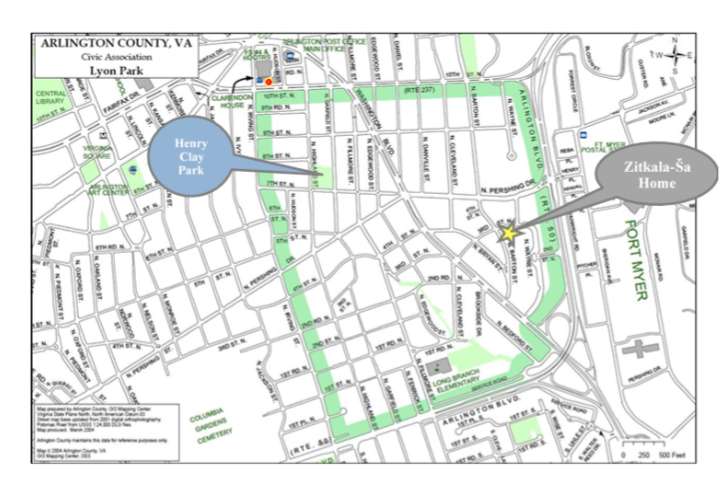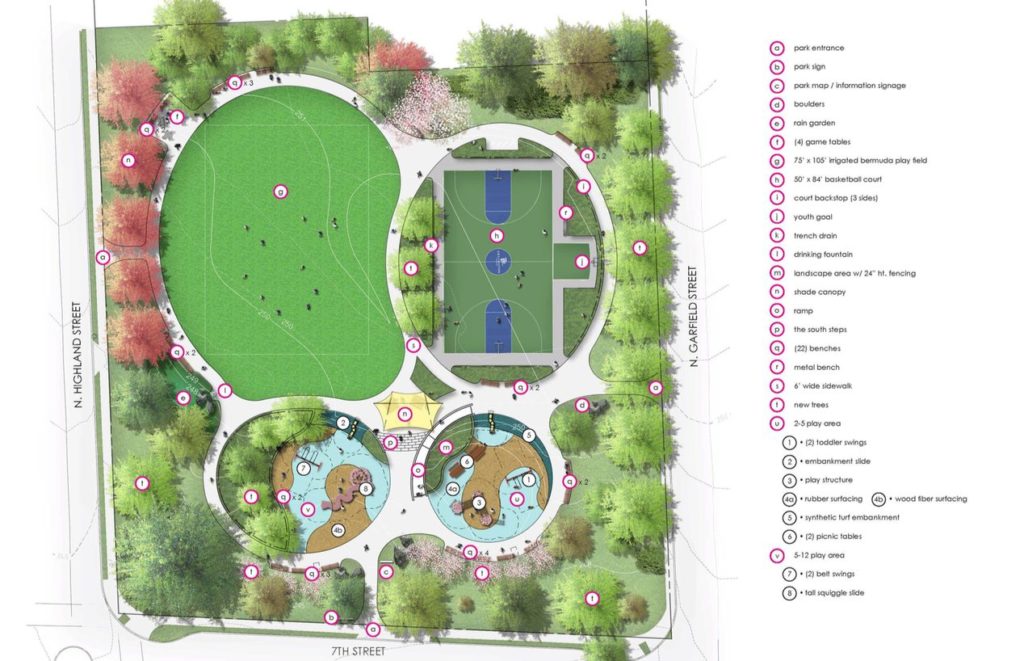A park that’s under construction a few blocks south of Clarendon is expected to get a new name.
Arlington’s Park and Recreation Commission is recommending Henry Clay Park be renamed Zitkala-Ša Park, after a prominent Indigenous activist and author who lived in Lyon Park. The County Board is set to consider the name change at its Saturday meeting.
The park at 3011 7th Street N. remains closed while it undergoes extensive renovations. It is slated to reopen in early 2021 with the new name.
The Lyon Park Citizens Association presented the idea to the Park and Recreation Commission this summer. In October, the change received unanimous support from the Historical Affairs and Landmark Review Board and majority support from the Neighborhood Conservation Advisory Committee, per a county staff report.
“This proposed name change comports with the County’s naming guidelines and will add significantly to the diversity of park names,” the Lyon Park Civic Association said.
Only a handful of individuals provided public testimony, mostly in favor of the change, though at least one person spoke out against it. The Commission voted for the change in late October.
According to the Department of Parks and Recreation, the park is where the original Lyon Park School stood. The building was renamed Henry Clay School in 1927 after Clay, a slave-owning Kentucky lawmaker and Secretary of State who fought a duel near Chain Bridge.
“It is believed that Henry Clay Park was created in the early 1980s and retained the name of the school previously located on the site,” the park website said.
Clay held abolitionist views but kept the slaves he inherited as a child, freeing them upon his death.
Zitkala-Ša (“Red Bird,” or Cardinal bird) and her husband, Captain Raymond Talefase Bonnin, moved to Lyon Park in 1925 and lived there until their respective deaths in 1938 and 1942. Both are buried in Arlington National Cemetery and their home still stands at the corner of 3rd Street N. and Barton Street.
Born in South Dakota in 1876, Zitkala-Ša was eight when Quaker missionaries recruited her to leave the reservation and attend a manual labor school. There, she was given the name Gertrude Simmons, her long hair was cut and she was forbidden from speaking her native language.
“Although she enjoyed learning to read and write, she experienced first-hand the damage of having her heritage stripped away,” Arlington Public Library wrote about her. “Feeling torn between her life on the reservation and her forced assimilation into white mainstream culture, Zitkála-Šá pursued higher education and distinguished herself as a public speaker on social and political issues.”
From 1911 to her death, she was politically active. She joined the Society for American Indians, speaking nationally on its behalf. She and her husband founded the National Council of American Indians and advocated for voting rights, healthcare, legal standing and land rights, the library said.
She also created the Indian Welfare Committee of the General Federation of Women’s Clubs, speaking in Washington, D.C., Arlington, and Fairfax.
She spent the rest of her life in as president of the Council of American Indians, “speaking and writing about the continuing political and social mistreatment of Native Americans,” the library said.
A county staff report recommends the County Board endorse the name change proposal.




